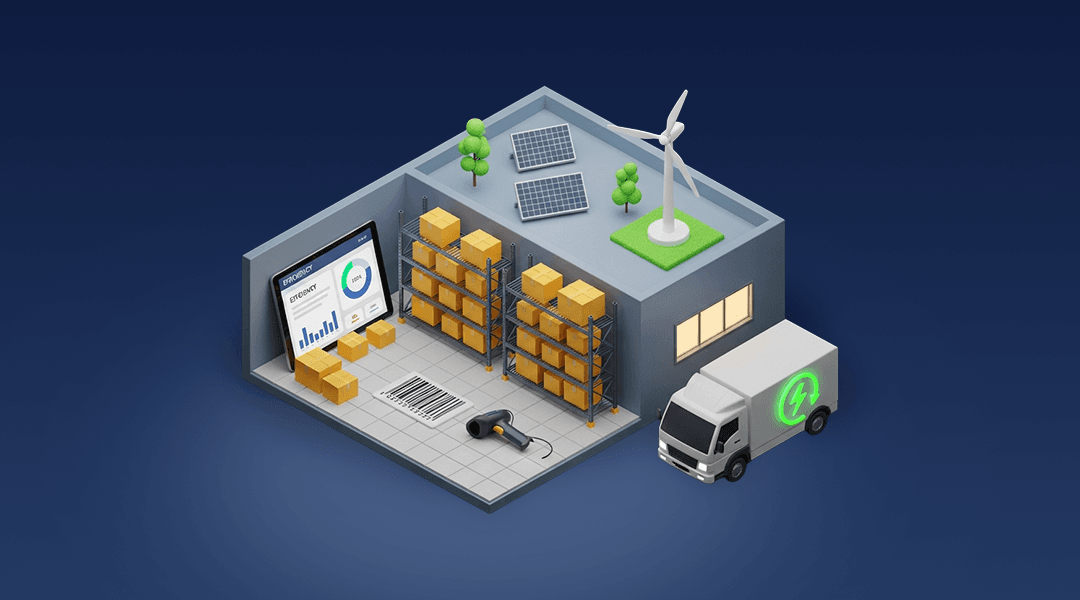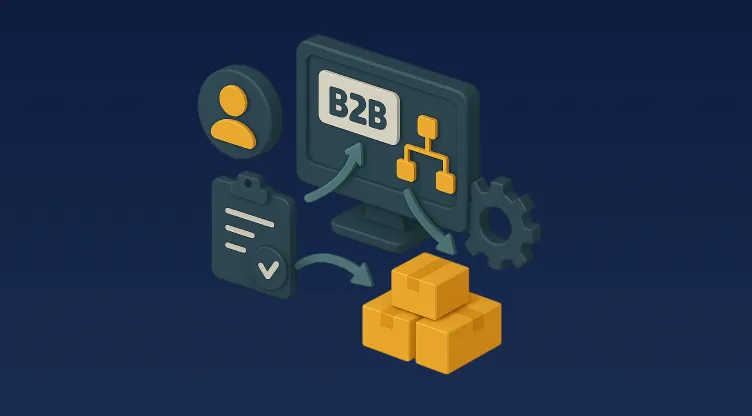Omnichannel Personalisation: Leveraging Data to Build Seamless Customer Journeys

Table of Contents
Your Smart Snapshot
- Personalised experiences boost conversion and loyalty across platforms.
- Data unification is essential for successful omnichannel journeys.
- AI, analytics, and OMS integration drive seamless customer interactions.
- Retailers in MENA are adopting real-time personalisation at scale.
- Omniful offers a plug-and-play Order Management System for omnichannel success.
A New Era of Retail: One Customer, Many Touchpoints
Today’s customers expect more than convenience—they want relevance. Whether scrolling through a mobile app, walking into a store, or browsing online, they desire a consistent, tailored experience.
In the MENA region, where digital adoption is accelerating, retail and eCommerce players must rethink their customer strategies. The future lies in understanding and predicting customer preferences across platforms—this is where omnichannel personalisation shines.
Let’s explore how brands are leveraging data to create unified journeys with omnichannel order management at the heart of their strategy.
What Is Omnichannel Personalisation?
Omnichannel personalisation refers to the ability of a brand to deliver consistent, individualised experiences across all customer touchpoints—whether in-store, online, mobile, or through customer support.
Unlike multichannel, which merely provides access across platforms, omnichannel ensures every interaction is informed by unified data. Each customer journey is seamless, context-aware, and dynamically tailored.
This goes beyond marketing. It includes logistics, order fulfilment, returns, and inventory visibility. Omnichannel personalisation is not only a retail strategy—it’s a business transformation.
Why Is This Important in MENA’s Retail & eCommerce Space?
In the Middle East and North Africa (MENA) region, shoppers are mobile-first, highly engaged, and increasingly driven by digital convenience. A report by PwC MENA shows that 52% of online shoppers abandon their carts due to lack of personalisation or poor delivery experiences.
GCC countries like the UAE and Saudi Arabia are pushing digital commerce forward. With initiatives like Saudi Vision 2030, omnichannel strategies have become critical for retail transformation.
Brands that adopt an omnichannel order management system (OMS) are not only surviving—they’re thriving. These systems power real-time personalisation by connecting data points across the customer journey.
The Role of Data in Personalised Omnichannel Fulfilment
Data is the engine of personalisation. But not all data is created equal.
To effectively personalise the omnichannel journey, retailers must combine:
- Transactional Data: Orders, returns, and payment patterns
- Behavioural Data: Browsing habits, search terms, product views
- Inventory Data: Real-time availability across channels
- Operational Data: Fulfilment SLAs, delivery preferences, warehouse status
A powerful order management system for omnichannel retail fulfilment enables brands to centralise these datasets. This not only improves personalisation but also ensures customers see the right product, with the right offer, at the right time—on the right channel.
Key Components of Effective Omnichannel Personalisation
Real-Time Inventory Visibility
Customers want accurate product availability. Real-time updates help them know what’s in stock, where, and when they can get it. This requires tight integration with Inventory Management Systems and Warehouse Management Systems.
Unified Customer Profiles
Connecting data from different platforms into one profile enables better targeting. Using AI, retailers can predict preferences and personalise recommendations, messaging, and fulfilment options.
Intelligent Order Routing
A data-driven Order Management System routes orders to the best fulfilment location—based on proximity, stock levels, or delivery type (like click-and-collect or same-day). This enhances both efficiency and satisfaction.
Seamless Returns Management
Personalisation doesn’t end with the sale. Offering flexible return options through Returns Management boosts customer trust. Reverse logistics data can also inform future recommendations and improve lifecycle value.
How Omniful Enables Omnichannel Personalisation
Omniful’s AI-powered platform supports retail, eCommerce, and 3PL brands in MENA with a plug-and-play omnichannel solution.
Here’s how:
- Real-Time Stock Sync across sales channels using Inventory Management System
- Multi-location Fulfilment powered by smart Warehouse Management and Omniship
- Customised Workflows that adjust fulfilment rules based on customer preferences
- Data-Driven Order Orchestration that ensures every order follows the most efficient, personalised path
- Returns Integration that supports Buy Online, Return In-Store (BORIS) and doorstep returns
This unified approach not only drives loyalty but also operational excellence—essential in today’s competitive commerce space.
MENA Success Stories: Real Brands, Real Results
Laverne (KSA)
Laverne, a D2C lifestyle brand group, managed millions of orders across 8 brands. After struggling with poor delivery timelines and lack of visibility, they switched to Omniful’s platform.
Outcome:
- Order-to-delivery time dropped from 4–6 days to 2–3 hours
- 100% accuracy in order and inventory since implementation
- Switched from 3PL to in-house fulfilment using WMS and OMS
Aramex (UAE)
The logistics giant needed a dynamic, white-labelled dashboard to manage 3PL orders across multiple regions. They lacked personalisation at scale.
Omniful Solution:
- Branded OMS Dashboard integrated with 20+ sales channels
- Inventory and fulfilment powered through dark stores and AI routing
- Reduced tech spend and time-to-launch across 100+ locations in KSA
These are examples of how omnichannel isn’t just about selling—it’s about delighting every customer, on their terms.
Personalisation in the Last Mile
With the rise of hyperlocal commerce, the last mile is where personalisation becomes reality. Tools like Transportation Management Systems optimise route planning based on customer locations and preferred delivery windows.
Personal touches such as delivery notifications, real-time tracking, and customised packaging go a long way. Data from these touchpoints feeds back into the omnichannel engine for even better experiences next time.
The Business Benefits of Omnichannel Personalisation
Beyond customer satisfaction, there are clear bottom-line advantages:
- Higher Conversion Rates: Tailored recommendations drive up purchase intent
- Reduced Returns: Personalised sizing and product suggestions lower return rates
- Improved Margins: Smart routing reduces shipping costs
- Increased Loyalty: Consistent experiences across platforms foster long-term engagement
According to McKinsey, companies that lead in personalisation achieve 40% more revenue than their peers. In MENA’s fast-paced market, this is not optional—it’s essential.
Challenges to Overcome
Even the best strategies come with hurdles:
- Data Silos: Separate platforms can lead to incomplete profiles
- Legacy Systems: Older ERPs are often inflexible and clunky
- Scalability: Personalisation must work for 10 customers or 10 million
Platforms like Omniful overcome these challenges with native integrations, real-time sync, and AI-powered automation—all key to sustainable omnichannel success.
Ready to Personalise? Start With the Right Tools
It’s not enough to collect data. Brands must act on it, in real-time, across every channel.
A robust Omnichannel Order Management System connects all the dots—orders, inventory, fulfilment, and returns—ensuring each customer feels seen, heard, and valued.
Whether you’re a retail chain in Riyadh or a D2C brand in Dubai, the journey to better personalisation starts with integrated systems. And Omniful is built for this future.
FAQs on Omnichannel Personalisation
How is omnichannel personalisation different from multichannel marketing?
Multichannel uses multiple platforms. Omnichannel connects them for unified experiences.
Can small businesses in MENA adopt omnichannel personalisation?
Yes. Platforms like Omniful offer flexible, scalable solutions suited for SMEs and enterprises.
What systems do I need to support personalisation?
You’ll need an OMS, WMS, POS, and analytics tools—ideally all integrated.
Is real-time inventory necessary for personalisation?
Absolutely. Without it, you risk recommending out-of-stock items and disappointing customers.
What role does AI play in personalisation?
AI helps predict preferences, route orders efficiently, and create adaptive experiences.
See Omniful in Action
Personalisation isn’t a luxury—it’s your next competitive edge. Ready to deliver unified, data-driven journeys across your retail channels?
👉 Request a Demo and transform how your brand connects with every customer.























